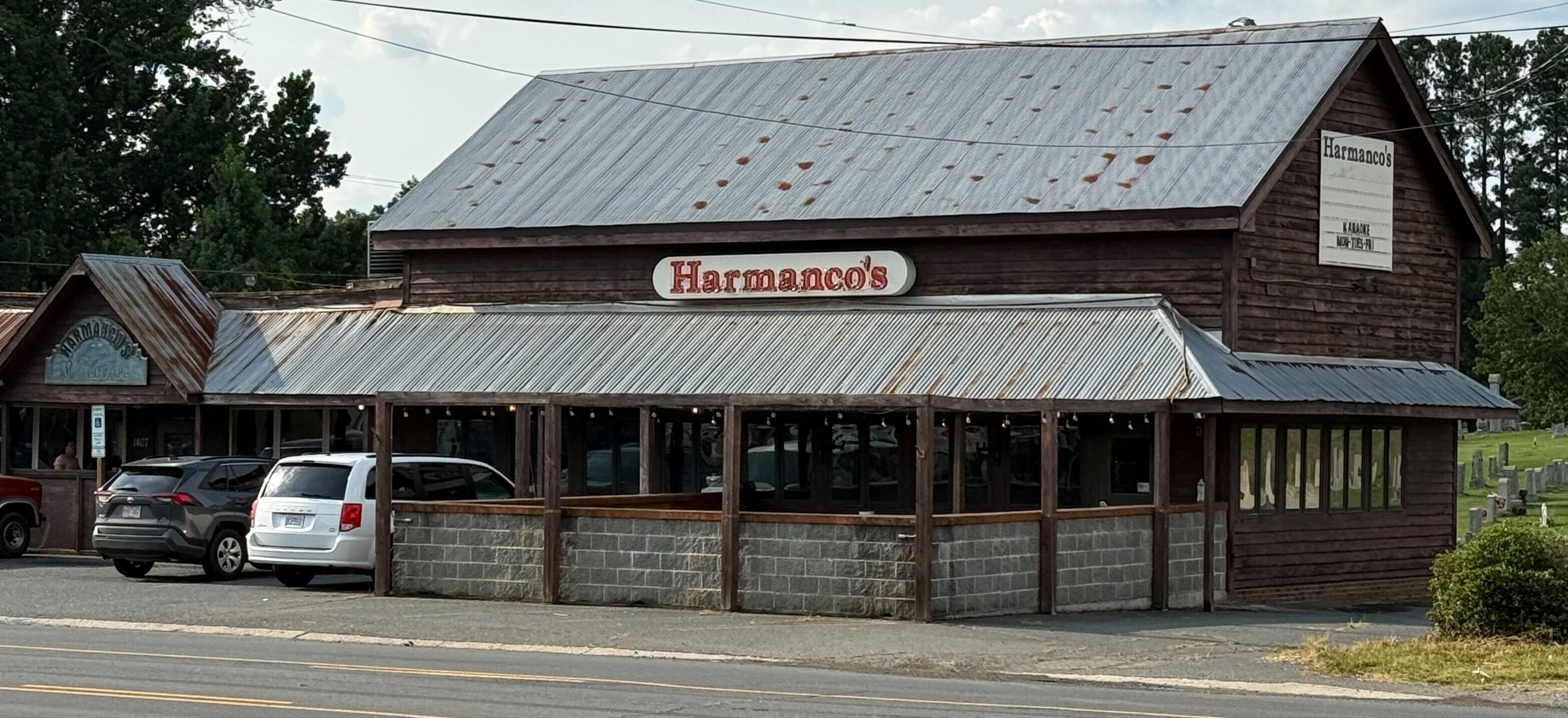Court upholds order for Yadkin Project license
Published 2:44 pm Monday, January 28, 2019
Despite efforts by the state to fight an operating license granted to Alcoa Power Generating, Inc. for the Yadkin Hydroelectric Project, the U.S. Court of Appeals for the District of Columbia Circuit decided to uphold the order granting the license. The argument was decided Jan. 18.
North Carolina argued Alcoa “misrepresented its plans to discontinue the use of project power for industrial production at Badin Works, a major source of employment in the state,” the court opinion filed by David B. Sentelle, senior circuit judge, stated.
“North Carolina alleges that Alcoa gained an unearned advantage and chilled competition because no other applicant possessed Alcoa’s ace in the hole: the ongoing industrial production at Badin Works and its impact on the public interest,” the opinion continued. “North Carolina proposes that (Federal Energy Regulatory Commission) reopen licensing proceedings, or, in the alternative, recommend federal recapture of the Yadkin Project for transfer to the state. We conclude that substantial evidence supports FERC’s decision, and we deny North Carolina’s petition for review.”
Trending
Alcoa had a 50-year operating license it received in 1958, according to the court document. The Yadkin Project includes multiple hydroelectric dams along the Yadkin River. Badin Works, an aluminum smelting plant, sustained about 1,000 North Carolina jobs.
Controversy
As the expiration of the initial license drew closer, Aloca applied for another in 2002, “immediately disclosing that aluminum production had been ‘temporarily curtailed,’ and that the Yadkin Project’s excess energy was being ‘sold on the open market,’ ” the court noted.
Alcoa notified FERC of a similar process in 2004, attributing it to “adverse business conditions.” In 2006, Alcoa said only about 2 percent of the electricity went to Badin Works, with the rest being “sold to help offset the cost of electricity purchases required for Alcoa’s other domestic smelting operations.”
In 2009, the state asked that FERC “recommend federal recapture” of the dams, then give them to the state. North Carolina would pay for Alcoa’s “statutory net investment and severance damages.”
Within months, Alcoa said Badin Works would close. It was July 2016 before Alcoa announced the Yadkin Project would be sold to Cube Yadkin Generation LLC. Alcoa applied for a license transfer, receiving approval that September. At the same time, FERC rejected the idea of a federal recapture suggested by the state.
Trending
The state requested a rehearing, but in December 2016, the license transfer received the green light. Alcoa sold the Yadkin Project to Cube in 2017.
The state didn’t back down.
“Final resolution came on Sept. 20, 2017, when FERC denied North Carolina’s petition for rehearing,” the court noted. “On Nov. 16, 2017, North Carolina petitioned this court to review FERC’s orders. The court permitted Cube to intervene. The matter was fully briefed, and the court heard oral argument on Oct. 17, 2018.”
Court opinion
The court checked the orders from FERC against the Administrative Procedure Act, under which the court can “reverse any agency action that is ‘arbitrary, capricious, an abuse of discretion, or otherwise not in accordance with law.’ ”
North Carolina alleged Alcoa committed a “bait-and-switch,” according to the court document.
The state believed Alcoa was deceptive “by allegedly implying that the Yadkin Project would resume supplying power to Badin Works, a major source of employment in the state,” the court noted. “North Carolina argues that FERC should reopen licensing because Alcoa’s alleged misrepresentations (1) served as patent deficiencies in its application and (2) gained Alcoa an unearned advantage by chilling competitors from applying.”
The court found neither allegation to be true.
Had Alcoa’s application been “patently deficient,” FERC should’ve reopened the licensing process, the court said, adding the court could find nothing to back up the state’s claims of “deficiencies or deception in Alcoa’s application.”
The court also decided Alcoa was honest through the whole process.
“Alcoa disclosed the curtailment of industrial production at Badin Works every step of the way, from its initial filing of intent to relicense, through its various correspondences with FERC, to the license application itself,” the court found. “Nothing in the record demonstrates any nefarious intent by Alcoa or Cube to deceive FERC or the public at large regarding the status of Badin Works. Although Alcoa initially characterized the curtailment as ‘temporary’ in 2002, its subsequent missives reflected worsening circumstances, so much so, that it assigned the Yadkin Project’s electricity purchase contract. The continued decline of Badin Works was publicly known, as were the adverse market conditions facing the domestic, aluminum-smelting industry. Given that 98 percent of the power generated from the Yadkin Project was being sold as of 2006, the fate of Badin Works was apparent to any competitor wishing to pursue the license.”
The court acknowledged the issue caused by the loss of the Badin Works jobs, but found no evidence Alcoa was deceptive.
“The loss of jobs from the closure of Badin Works is a dark and menacing cloud that hangs over the state of North Carolina,” the court said. “However, Alcoa did not conceal this impending squall, and thus, FERC did not err by denying North Carolina’s request to reopen licensing.”
The court also addressed North Carolina’s request that FERC recommend federal recapture of the Yadkin Project.
“North Carolina also claims that FERC dismissed its federal recapture proposal without engaging in a reasoned analysis,” the court said. “The state’s proposal — albeit creative — lacked any basis in the law.”
While FERC could recommend a federal recapture, that process is designed for times the federal — not the state — government would “maintain and operate” it after the federal recapture.
“Under North Carolina’s proposal, the federal government would not ‘maintain’ or ‘operate’ the Yadkin Project, but instead transfer it to the state,” the court said. “North Carolina does not and cannot identify a single case, statute, or regulation to provide authority for such a taking-and-transfer. As the plain language of the FPA establishes, Congress authorized federal recapture for federal use, not subsequent transfer to state entities.”
The court recognized the Badin Works closure caused issues, but found no legal wrongdoing on Alcoa’s part in regards to harming public interest.
“The elephant in the room, as with many things in life, is money,” the court said. “The cost of a federal recapture equates to Alcoa’s ‘net investment’ plus severance damages… This amount may be less than ‘just compensation’ or a negotiated transfer fee since the most recent sale of the Yadkin Project cost $243 million… coincidentally, the closure of Badin Works and the loss of jobs resulted in ‘a volcanic eruption… of anger’ in North Carolina that ‘became a major political issue,’ with politicians seeking to use monies from the Yadkin Project to fund state initiatives, such as education… However, thriftiness and political pressure do not create a legal basis for federal recapture when its sole purpose is transferring the hydropower project to a state. Indeed, none exists.”
Resolution
Is the battle over?
The court noted that “North Carolina had and still has options for obtaining the Yadkin Project if it so desires.”
While a federal recapture isn’t an option, the court said that “during the application period, North Carolina could have filed its own competing application… The state could potentially have initiated a condemnation proceeding of the Yadkin Project, acquiring title for ‘just compensation’ to the licensee… And North Carolina could have negotiated a transfer from the licensee.”
With the latest challenge out of the way, Mark Gross, vice president of operations for Cube Hydro Partners, is hopeful for the future.
“We are pleased to see the ruling from the DC Circuit Court denying the State’s appeal of Cube Yadkin Generation’s new FERC license,” Gross said via email. “Once the legal process is completed, we can begin the full implementation of the Relicensing Settlement Agreement.”
Santelle, the senior circuit judge, and Circuit Judges Robert Wilkins and Gregory Katsas heard the case.
Imari Scarbrough is a freelance contributor for The Stanly News and Press.





